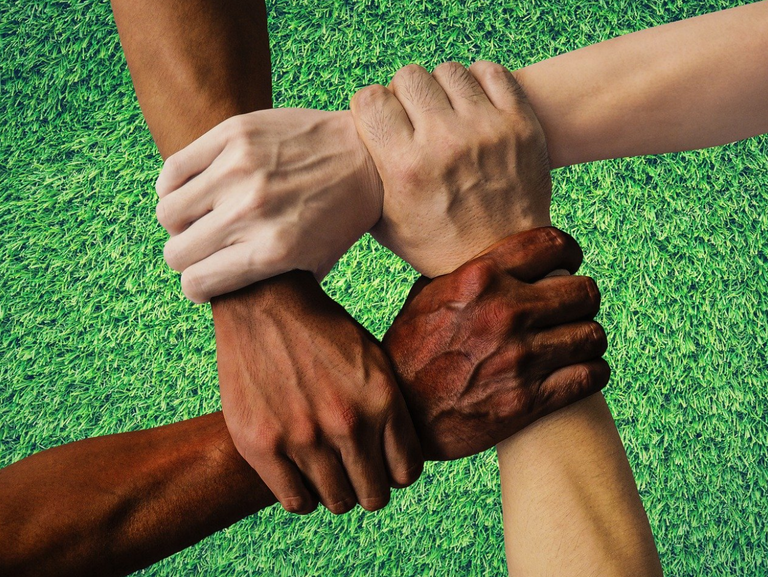
Las nuevas reglas económicas impuestas por la pandemia del coronavirus (hoy aparentemente una amenaza superada -no eliminada- gracias a la prevención, la concientización y las vacunas) en el ámbito familiar, social, político y económico ha dejado al descubierto algunos aspectos ignorados socialmente y que, al reprender de a poco nuestra vida cotidiana en todos los sentidos, los hemos llegado a valorizar en su verdadera magnitud.
Esta nueva sociedad, tan virtual en algunos aspectos, tan tradicional en otros ha traído como consecuencia la apoteosis del uso de Internet, para la escuela, para el trabajo (incluso desde nuestra propia casa no solo para los trabajadores independientes sino también para los empleados -especialmente estatales-, para la educación a distancia con el auge del e-learning, para los controles, para la aplicación masiva de aplicaciones en los celulares, etc.
Pero también, para los hemos tenido la oportunidad de vivir en otros continentes, conceptualizados como más desarrollados -odio usar la palabra Primer Mundo- como por ejemplo Europa hemos visto caracteres distintivos de una sociedad que está atravesando un verdadero punto de inflexión en su modo de vivir y de interpretar el concepto integral de sociedad.
Para un europeo -hasta llegar a los años 70-80- su mayor ambición era el préstamo para la casa, cambiar el auto cada dos o tres años y las infaltables vacaciones anuales, año tras año, sin saltar ninguno.
Este comportamiento legítimo desde todo punto de vista los llevó a descuidar un aspecto esencial de la familia: sus integrantes, y, concretamente el número de integrantes.
Para poder seguir la carrera ambicionada -no tanto universitaria porque en la mayor parte de Europa los estudiantes universitarios son mucho más bajos por ejemplo que en algunos países de Latinoaméerica -en Europa la universidad se paga y bastante, en Latinoamérica, en líneas generales, es gratuita, sino desde la perspectiva del trabajo mismo: entiéndase esto como ascensos y la carrera jerárquica en la empresa.
Para ello, me decía un amigo -apenas llegué a Italia en el año 1994-, "debes sacrificar la familia". La norma, un solo hijo, que de pequeño es acudido por los abuelos durante la semana. A los 18 años el auto y a trabajar. Matrimonio no antes de los 35-40 años. Ser abuelo significa superar los 65-70 años.
Lo que fue una verdadera panacea por años se transformó en una pesadilla.
La irrupción de China en el mercado global fue devastante para Europa. Recuerdo que poco después del 2000 la coalición europea de países industrializados liderada por la Unión Europea a nivel institucional amenazó a China con imponer una política de anti-dumping, es decir, en vez de rebajar las tarifas aduaneras las iban a aumentar para impedir el ingreso masivo de productos chinos a bajo costo en un mercado, como el europeo, que ya estaba saturado.
China respondió con una jugada maestra de política económica que aún se recuerda: respondió que no era necesario alzar las tarifas que ellos mismos las iban a levantar en su paìs de origen -algo que efectivamente hicieron- para que el ingreso en concepto de impuestos aduaneros quedara en su país. Lo que no aclararon -y también hicieron- fue ubicar en cada país eurpeo una Oficina de Representación de China para asesorar a todas las empresas que quisieran radicarse en aquél país.
El resultado creo que es obvio pero igual lo voy a mencionar. Exodo masivo de pequeñas, medias y grandes europeas europeas hacia China para producir los mismos productos que en Europa con costos muchísimos más bajos, mano de obra más baja, exención de impuestos y controles de calidad reducidos al mínimo indispensable.
Desempleo, déficit fiscal y continuo endeudamiento fueron los aspectos recurrentes de todos los países europeos, algunos más otros menos, agravados por la pandemia.
Si la idea del europeo medio era tener un solo hijo pasó directamente a no tenerlo. La población comenzó a envejecer y el algunos estados 2 de 3 personas superan los 60 años, es decir están pensionados, han dejado de contribuir al Estado quien, en cambio, se debe ocupar de ellos.
Los jóvenes, como los de cualquier otro país no aceptan realizar cualquier tipo de tarea menos aún ahora que han descubierto que también con Internet pueden ganar dinero. Tal vez no un sueldo pero si lo suficientes para sus gastos si viven con las padres.
Si algún europeo lee este post seguramente se sentirá identificado con el mismo. Aunque le cueste aceptarlo. La realidad es esa.
Esa misma realidad que ha hecho que la integración de otras sociedades a la vida social, cultural, política y económica de estos estados vaya creciendo lenta y paulatinamente.
Por este motivo recién ahora descubro el verdadero objetivo de este post. Intento razonar y compartir con todos los #hivers de esta comunidad una idea que me gira por la mente desde hace bastante tiempo: vamos camino hacia una nueva sociedad multiracial, mayormente integrada por personas que hasta no hace mucho esa misma sociedad despreciaba -en algunos casos abiertamente y en otros toleraba con mucha hipocresía-?
Hace algunas décadas comenzó a llamar la atención como los afroamericanos se integraban en distintas esferas del poder de los EE. UU. de América. En su momento el gran actor Sidney Poitier era relegado -y en líneas generales siempre lo fue- en su trabajo a pesar de haber hecho una película monumental como fue Al Maestro con Cariño. Sin embargo hoy -después de más de medio siglo-la cantidad de actores, artistas, músicos, escritores, etc de origen afroamericano es inmensa. Dentro de medio siglo continuando esta evolución los mismos será mayoría y estará seguramente en cargos estratégicos de conducción y dirección en grandes empresas, multinacionales con diversas actividades, deportes, etc.
Alemania por ejemplo ya tiene en los cargos directivos de muchas empresas un gran número de representantes de la comunidad turca, ya la segunda generación alemana de estas características. Con principios sociales, económicos, políticos y religiosos que si bien no responden al ADN de sus antepasados tampoco los reniega.
Un sector importante de los emigrantes hindúes se han insertado en el sector de Internet escalando posiciones y cargo y hoy son CEO de importantes empresas.
Los europeos nativos con 40 o más años se encuentran en la disyuntiva de no querer realizar trabajos manuales considerados de baja categoría pero tampoco tienen la aplicación, las ganas y/o la voluntad de aprender nuevas técnicas para meterse dentro de un esquema económico más competitivo.
Los inmigrantes los aceptan, trabajan mucho más de ocho horas al día, no está obsesionados por la vacaciones y el auto y la casa son para ellos un lujo. Esto les permite acceder cada vez más a puestos de trabajo de mayor importancia y ganar lo suficiente para el sustento de su familia, que por características e idiosincracia propias, está compuesta por varios hijos.
Que será de esta sociedad dentro de 20-30 años integrada en su minoría por personas ancianas nativas de su país y en su mayoría por una inmigración -que en sus orígenes fue hasta clandestina- habituada a otras normas de vida pero que regulan el verdadero mecanismo del consumo occidental?
El nuevo mundo de las criptomonedas parece alejarse cada vez más de estas personas. Por edad, por formación muchas veces no entienden y otras veces no quieren hacerlo, la importancia de un mundo virtual que será real en un futuro cercano.
Resulta difícil imaginar como CEO de un exchange, de una plataforma o de cualquier iniciativa generada en la blockchain a un español, un italiano, un alemán, un francés. Cuando ocurre es la excepción a la regla.
Asiáticos, africanos y latinoamericanos de los llamados "países pobres" parecen haber entendido el mecanismo de esa fuerza inscontrastable e imposible de detener que son las criptomonedas. Filipinas, Paquistán y Venezuela, para seguir el orden anterior, lideran un grupo que ha entendido perfectamente las reglas del juego. Que el presidente de El Salvador haya intentado en su momento transformar la moneda metálica y el papel moneda por las criptos con la instalación incluso de cajeros destinados a tal fin parece una broma y sin embargo es la realidad.
Antes que la segunda parte de este milenio comience (2050) la sociedad actual, en su concepto integral y tradicional, habrá desaparecido. Nuevas costumbres, hábitos y moder de intercambio serán presentes en el planeta aunque todavía, por simple respeto y algo de miedo, no nos animeos a avizorar.
No somos ni George Orwell ni Julio Verne, esos visionarios que a través de su libros nos mostraron el camino que tomarían las relaciones humanas, la ciencia y los descubrimientos pasados concuenta años o un siglo después.
Los nuevos integrantes de una sociedad nueva dejarán sin duda su marca. Que será distinta a la que venimos observando hasta hoy.

The new economic rules imposed by the coronavirus pandemic (today apparently a threat that has been overcome - not eliminated - thanks to prevention, awareness-raising and vaccines) in the family, social, political and economic spheres have exposed some aspects that were socially ignored and which, by gradually reprising our daily lives in all senses, we have come to value in their true magnitude.
This new society, so virtual in some aspects, so traditional in others, has brought as a consequence the apotheosis of the use of the Internet, for school, for work (even from our own home, not only for independent workers but also for employees -especially state employees-, for distance education with the rise of e-learning, for controls, for the massive application of applications on mobile phones, etc.).
But also, for those of us who have had the opportunity to live in other continents, conceptualised as more developed - I hate to use the word First World - such as Europe, we have seen the distinctive characteristics of a society that is going through a real turning point in its way of living and of interpreting the integral concept of society.
For a European -until the 70s and 80s- his greatest ambition was the loan for the house, changing the car every two or three years and the infallible annual holiday, year after year, without skipping a single one.
This legitimate behaviour from every point of view led them to neglect an essential aspect of the family: its members, and specifically the number of members.
In order to be able to pursue the desired career - not so much at university because in most of Europe university students are much lower, for example, than in some Latin American countries - in Europe university is paid for and quite a lot, in Latin America it is generally free, but from the perspective of work itself: this is understood as promotions and the hierarchical career in the company.
To do this, a friend of mine told me - I had just arrived in Italy in 1994 - "you have to sacrifice your family". The rule is one child, who is looked after by grandparents during the week when he or she is young. At 18, the car and off to work. Marriage not before the age of 35-40. Being a grandparent means being over 65-70 years old.
What was a real panacea for years has turned into a nightmare.
China's entry into the global market was devastating for Europe. I remember that shortly after 2000 the European coalition of industrialised countries led by the European Union at the institutional level threatened China with imposing an anti-dumping policy, i.e. instead of lowering customs tariffs they were going to increase them to prevent the massive entry of low-cost Chinese products into a market, such as the European one, which was already saturated.
China responded with an economic policy masterstroke that is still remembered today: it replied that it was not necessary to raise tariffs because they themselves were going to raise them in their country of origin - which they did - so that the revenue from customs duties would remain in their country. What they did not make clear - and what they also did - was to set up a China Representative Office in each European country to advise all companies wishing to set up in China.
I think the result is obvious, but I will mention it anyway. Massive exodus of small, medium and large European companies to China to produce the same products as in Europe with much lower costs, lower labour force, tax exemption and quality controls reduced to the indispensable minimum.
Unemployment, fiscal deficits and continued indebtedness were the recurrent features of all European countries, some more, some less, aggravated by the pandemic.
If the idea of the average European was to have one child, he or she went straight to not having one at all. The population started to age and in some states 2 out of 3 people are over 60, i.e. they are pensioners, they have stopped contributing to the state which, on the other hand, has to take care of them.
Young people, like those in any other country, do not accept to do any kind of work, especially now that they have discovered that they can also earn money on the Internet. Maybe not a salary, but enough for their expenses if they live with their parents.
If any European reads this post, he or she will surely feel identified with it. Even if it is hard to accept it. That is the reality.
The same reality that has made the integration of other societies into the social, cultural, political and economic life of these states grow slowly and gradually.
That is why I am only now discovering the real purpose of this post. I am trying to reason and share with all the #hivers in this community an idea that has been on my mind for quite some time: we are on the way to a new multiracial society, mostly made up of people that until not so long ago that same society despised - in some cases openly and in others tolerated with much hypocrisy?
A few decades ago, attention began to be drawn to how African-Americans were becoming integrated into various spheres of power in the United States of America. At the time, the great actor Sidney Poitier was - and generally speaking always was - overlooked in his work, despite having made a monumental film like To the Master with Love. However, today - after more than half a century - the number of actors, artists, musicians, writers, etc. of African-American origin is immense. In half a century's time, continuing this evolution, they will be the majority and will surely be in strategic positions of leadership and management in large companies, multinationals with diverse activities, sports, etc.
Germany, for example, already has a large number of representatives of the Turkish community in management positions in many companies, already the second German generation of these characteristics. They have social, economic, political and religious principles which, although they do not correspond to the DNA of their ancestors, they do not deny them either.
An important section of the Indian emigrants have entered the Internet sector and have risen through the ranks and are now CEOs of important companies.
Native Europeans aged 40 and over find themselves in the dilemma of not wanting to do manual work that is considered menial, but neither do they have the application, desire and/or willingness to learn new techniques to enter a more competitive economic scheme.
Immigrants accept them, they work much more than eight hours a day, they are not obsessed with holidays and the car and the house are for them a luxury. This allows them to gain access to more and more important jobs and to earn enough to support their families, which, due to their own characteristics and idiosyncrasies, are made up of several children.
What will become of this society in 20-30 years' time, made up of a minority of elderly people who are natives of their own country and a majority of immigrants - originally even clandestine - who are accustomed to other standards of living, but who regulate the real mechanism of Western consumption?
The new world of cryptocurrencies seems to be increasingly distancing itself from these people. Because of their age and education, they often do not understand, and sometimes do not want to understand, the importance of a virtual world that will be real in the near future.
It is difficult to imagine a Spaniard, an Italian, a German, a Frenchman or a Frenchman as CEO of an exchange, a platform or any other blockchain-generated initiative. When it happens, it is the exception to the rule.
Asians, Africans and Latin Americans from the so-called "poor countries" seem to have understood the mechanism of this inscrutable and impossible-to-stop force that is cryptocurrencies. The Philippines, Pakistan and Venezuela, to follow the above order, lead a group that has perfectly understood the rules of the game. The fact that the president of El Salvador has tried to transform metallic currency and paper money into cryptocurrencies, including the installation of ATMs for this purpose, seems like a joke, yet it is the reality.
Before the second part of this millennium begins (2050), today's society, in its integral and traditional concept, will have disappeared. New customs, habits and modes of exchange will be present on the planet, although we still, out of simple respect and a little fear, do not dare to look ahead.
We are neither George Orwell nor Jules Verne, those visionaries who, through their books, showed us the path that human relations, science and discoveries would take fifty years or a century later.
The new members of a new society will undoubtedly leave their mark. It will be different from the one we have been observing until today.
Posteo cruzado / Crossposting.
| Blogs, Sitios Web y Redes Sociales / Blogs, Webs & Social Networks | Plataformas de Contenidos/ Contents Platforms |
|---|---|
| Mi Blog / My Blog | Los Apuntes de Tux |
| Mi Blog / My Blog | El Mundo de Ubuntu |
| Mi Blog / My Blog | Nel Regno di Linux |
| Mi Blog / My Blog | Linuxlandit & The Conqueror Worm |
| Mi Blog / My Blog | Pianeta Ubuntu |
| Mi Blog / My Blog | Re Ubuntu |
| Mi Blog / My Blog | Nel Regno di Ubuntu |
| Red Social Twitter / Twitter Social Network | @hugorep |

| Blurt Official | Blurt.one | BeBlurt | Blurt Buzz |
|---|---|---|---|
 |  |  |  |
 |  |  |  |
|---|
